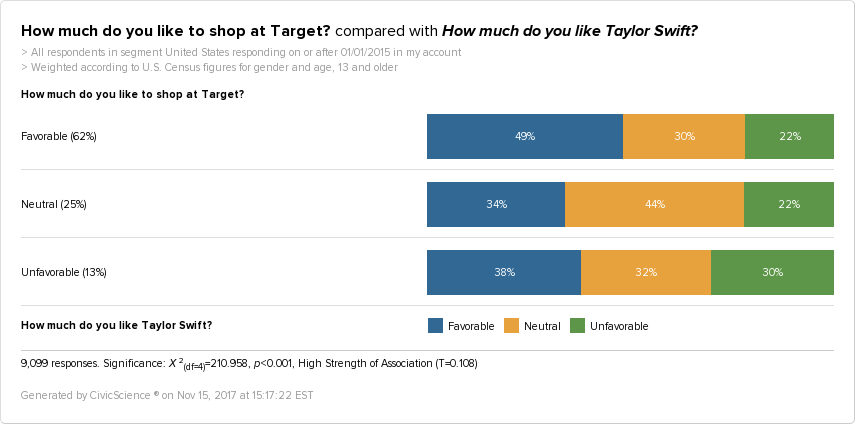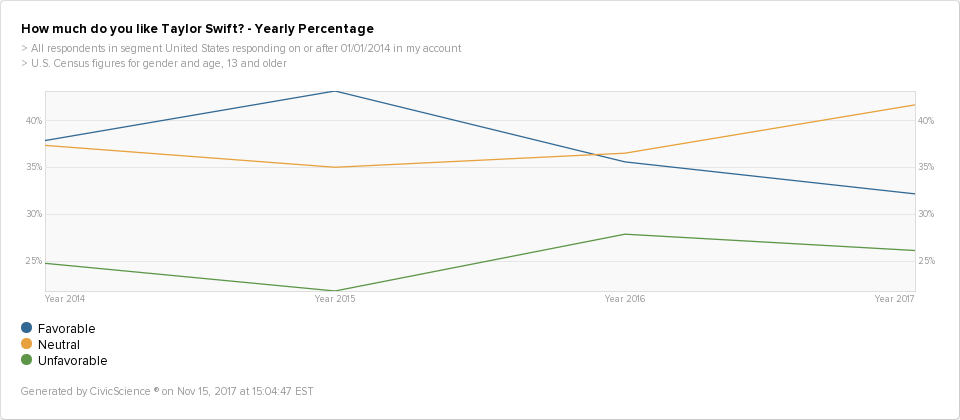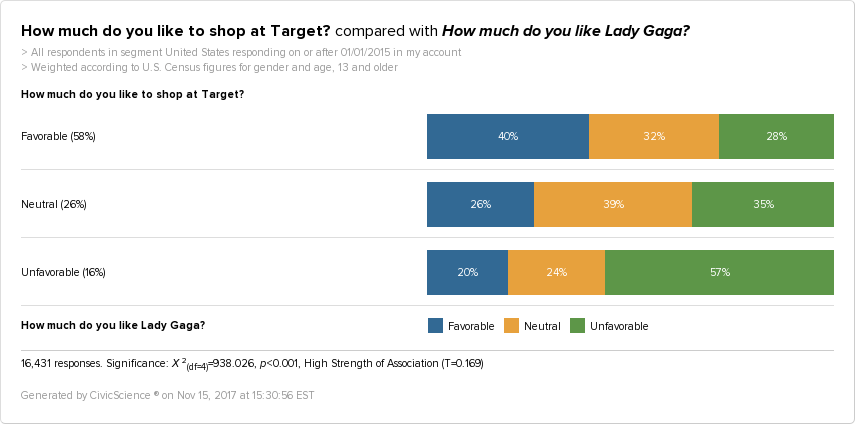The Gist: Target’s long-standing partnership with Taylor Swift seems to captivate both current fans and those who are unfavorable towards Target. This partnership presents various lessons for others brands that are hoping to drive in-store traffic.
A few weeks ago marked a big day for a friend of mine. It wasn’t his birthday, no, and he didn’t get a raise (that I know of). It was November 8th.
That might not mean anything to the everyday reader, but for Taylor Swift fans, it’s serious business. It was the release date of her latest album, Reputation.
Each time Taylor Swift releases an album, hundreds of thousands of eager fans lose their minds. But, unlike fans of other artists, they do so in Target. The singer releases bonus tracks and a special magazine that can only be purchased with the CD in Target, which is enough to drive many folks into stores. My friend, for example, says that he has gone to Target for the release of every single one of Swift’s albums.
Kind of funny, and really interesting. Why?
As we all know, stores like Target aren’t exactly in an easy position. As more and more consumers shop online, and as Amazon gains a larger share of the market each day, it’s evermore demanding to drive in-store traffic. In addition, less and less consumers are buying physical albums. No wonder, then, why brands are closing so many flagship stores, even Target.
However, this celebrity partnership offers an incredibly creative way to guide consumers into stores, at least for a short while. And it seems that, for Target, Taylor Swift might be one of the safest bets.
Take a look at this:
Nearly half of consumers who have a favorable view of shopping at Target are also fans of Taylor Swift. But, what’s even more interesting are the percentages of consumers who don’t like Target, or who have no opinion, that are also fans of the once-country idol.
For example, 39% of consumers who don’t like Target are fans of Taylor Swift. Perhaps love for the singer could, or has, driven these skeptics into stores. While they’re in there buying that special edition album, maybe they’ll see something else that catches their eye? You never know.
This love for Taylor Swift among all sorts of Target consumers is even more noteworthy when we consider the singer’s decline in favorability among the general population.
In 2015, 43% of consumers were fans of Taylor Swift, while only 22% held an unfavorable view. This year, those numbers are almost neck-and-neck, at 32% and 26%. In addition, the largest growth seems to be coming from those who feel neutral towards the singer.
I want to shy away from making assumptions here about both Taylor and Target, but I will say this: these celebrity partnerships are an invaluable way to drive traffic and positive brand awareness if brands choose the right spokesperson for them – one that captivates both the fan and the skeptic – as Taylor Swift seems to do for Target. Not just any celebrity will do – just look at the difference for Lady Gaga.











